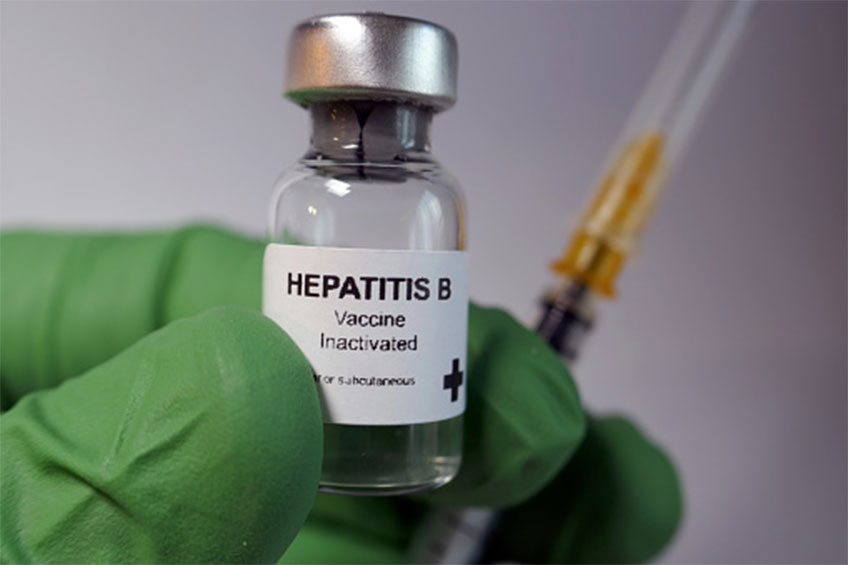
health talk:with Dr Johannes Marisa
I want to discuss Hepatitis B, a serious liver infection which is caused by Hepatitis B virus. The Hepatitis B virus is a highly infectious virus. The World Health Organisation estimates that as of 2016, 257 million people were living with chronic Hepatitis B. Unfortunately, only 10,5% of these were aware of their infection, meaning the majority of people remain in the darkness.
In 2015, close to one million deaths resulted from Hepatitis B through complications such as liver cirrhosis and hepatocellular cancer. When Hepatitis B infection becomes chronic, it lasts more than six months. Having chronic Hepatitis B increases your risk of developing liver failure, liver cancer or cirrhosis.
Symptoms Signs and symptoms of Hepatitis B range from mild to severe. They usually appear about one to four months after being infected although one can see them as early as two weeks post-infection.
Some people, usually young children, may not have any symptoms. The following may be signs and symptoms: yellowing of eyes, yellow urine, abdominal pain, nausea and vomiting, fever, weakness and fatigue, as well as loss of appetite.
Causes While many people only think about HIV during their risky behaviours, Hepatitis B is equally dangerous and even threatens to be more virulent than HIV. It is thought that Hepatitis B is 100 times more infectious than HIV. The virus is passed from person to person through blood, semen or other bodily fluids, ways that are similar to HIV transmission. Therefore, common ways of transmission include:
Sexual contact: You can get Hepatitis B if you have unprotected sex with someone who is infected. The virus passes with contact with blood, semen, vaginal secretions or even saliva.
Sharing of needles: The Hepatitis B virus can spread through contaminated needles or syringes. Drug addicts are at greater risk of contracting Hepatitis B.
- Chamisa under fire over US$120K donation
- Mavhunga puts DeMbare into Chibuku quarterfinals
- Pension funds bet on Cabora Bassa oilfields
- Councils defy govt fire tender directive
Keep Reading
Accidental needle prick: Hepatitis B should be a serious concern for health care workers and anyone who comes into contact with human blood. Vaccination should thus be done on medical students, nursing students, doctors and nurses, among others.
Mother-to-child: Infected mothers can pass the virus to their babies during childbirth. The newborn should thus be vaccinated as per the immunisation schedule here in Zimbabwe. Please talk to your doctor about being tested for Hepatitis B if you are pregnant or you intend to be pregnant.
Complications Hepatitis B can be a very serious infection with serious complications. Usually complications are life-threatening. The following are some complications:
Scarring of the liver (cirrhosis): The inflammation associated with Hepatitis B can lead to extensive liver scarring which may impair liver function ability with resultant symptoms like swelling of the legs and abdomen.
Liver cancer: People with chronic Hepatitis B have an increased risk of liver cancer. Do frequent tests for tumour marker alpha-fetoprotein.
Liver failure: The functions of the liver shut down with resultant swelling of the body as proteins are lacking in the body.
Kidney failure: Patients can develop kidney failure as part of the hepato-renal syndrome.
Prevention The Hepatitis B vaccine can be administered. Check if you are not a candidate for the Hepatitis B vaccine. The vaccine is recommended for the following: lNewborns.
lChildren and adolescents not vaccinated at birth.
lHealth care workers: A lot of nurses, nurse aides, doctors remain unvaccinated, be careful lAnyone who recently had a sexually transmitted infection.
lPeople with multiple sexual partners.
lSexual partners of someone with Hepatitis B.
lThose who inject themselves with illegal drugs.
lPeople with chronic liver disease.
lTravellers planning to go to an area of the world with a high Hepatitis B infection rate.
Diagnosis Diagnosis involves both thorough investigations and tests. Examination may find yellow eyes, right abdominal tenderness, dehydration or even lethargy. Tests that can be done include:
Blood tests: Liver function tests (LFTs), Hepatitis screen.
Ultrasound scan: A special scan called Transient Elastography can show the amount of liver damage.
Liver biopsy: A small piece of your liver can be taken for pathological analysis.
Treatment Treatment of Hepatitis B after exposure to the virus within a short time involves the use of Immunoglobulin given within 12 hours of exposure.
Treatment for chronic Hepatitis B Involves the following: Antiviral medications: Several antiviral medications include Entecavir, Tenofovir, Lamivudine, Adefovir and Telbivudine. These slow the virus to damage your liver.
Interferon injections: Interferon alpha helps fight the infection. It is used mainly for young people with Hepatitis B who wish to avoid long-term treatment or women who might want to get pregnant within a few years.
Liver transplant: If the liver has been extensively damaged, a liver transplant is an option. Most transplanted livers come from deceased donors.
Unfortunately, it is not done in Zimbabwe.
Keep your liver, one of the most important organs in your body, healthy. Advise your colleague to get screened early!
Till we meet next week
lDr Johannes Marisa is a medical practitioner, an educationist and public health expert who can be accessed on [email protected]











